Biodegradable Plastics: The Eco-Friendly Solution You've Been Waiting For
Introduction to Biodegradable Plastics:
So what are biodegradable plstics? Manufacturers created biodegradable plastics to tackle environmental concerns linked to traditional plastics. They come from plants or fossil sources. They design these plastics to naturally break down into substances like CO2 and water when in the right conditions. Meanwhile traditional plastics do not break down naturally and is created from fossil fuels.
People can recycle traditional plastics and transform them into new plastic products. But, biodegradable plastics cannot mix with traditional plastics in the recycling process.
This is because the two types of plastics have different properties and behaviors. Mixing them can lead to contamination and reduce the quality of the recycled materials. So, while traditional plastics can take part in the recycling loop, we must process biodegradable plastics in an alternative manner. We can also send them to composting facilities to harness their intended environmental benefits. It's important to use each type in the right way for the environment.
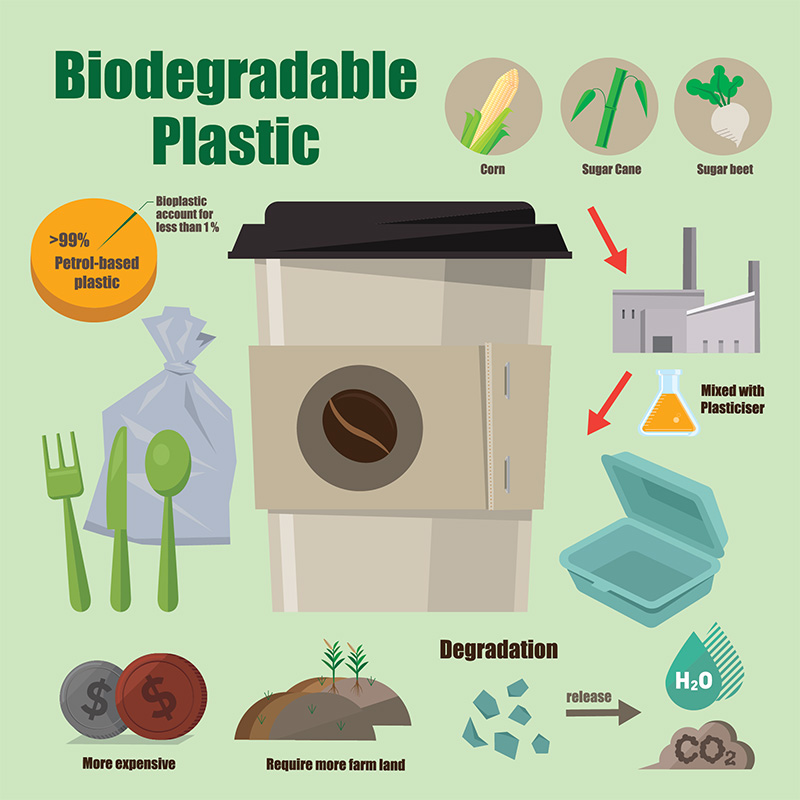
Environmental issues caused by non-biodegradable plastics:
Non-biodegradable plastics are a big problem for our environment. They don't break down easily leading to both land and water pollution. In the ocean and rivers, animals can get hurt or die from getting caught in these traditional plastics. They can also consume these plastic by mistake, thinking it's food.
Since these plastics stick around for hundreds of years and can release harmful toxins into the ground and water. When they are not disposed in a proper manner, it can have far-reaching effects on both the environment and human health.
Plastic is made from oil, which means we have to cut down trees to make room for oil drilling. This is bad for animals as it contributes to habitat loss.
Making plastic also adds to climate change because it lets out greenhouse gases. These gases harm both human and wildlife populations. They become more serious with the ongoing use of non-biodegradable plastics.
Plastic has chemicals that can get into our food and water. This can make us sick and cause health problems.
In short, plastic that doesn't break down easily. It pollutes our land and water, harms animals, and connects to climate change and health issues. We need to use less of it and find better ways to take care of the Earth.
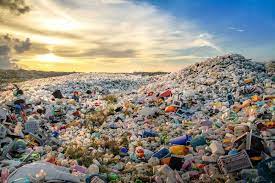
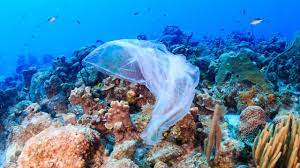
Types of Biodegradable Plastics:
There are different types of biodegradable plastics. Each comes from various sources and has its own special traits. PLA, for instance, comes from things like corn or sugarcane. This biodegradable plastic works well for making items like cutlery and food packaging. Polyhydroxyalkanoates (PHA) originate from plant sugars or lipids. People use them in things like medical devices and packaging. Polybutylene Adipate Terephthalate (PBAT) comes from petroleum-based chemical.
It is often used in compostable bags. Manufacturers make biodegradable plastics that are starch-based from things like corn. You can discover them in food packaging. There is also biodegradable plastics like Polyester Polyurethane (PUR), Polyglycolic Acid (PGA), and Polycaprolactone (PCL), each with their own uses, like in textiles or medical things. But some biodegradable plastics need special conditions to break down in a proper manner. This is why it's important to use and dispose of them in the right way for the environment.
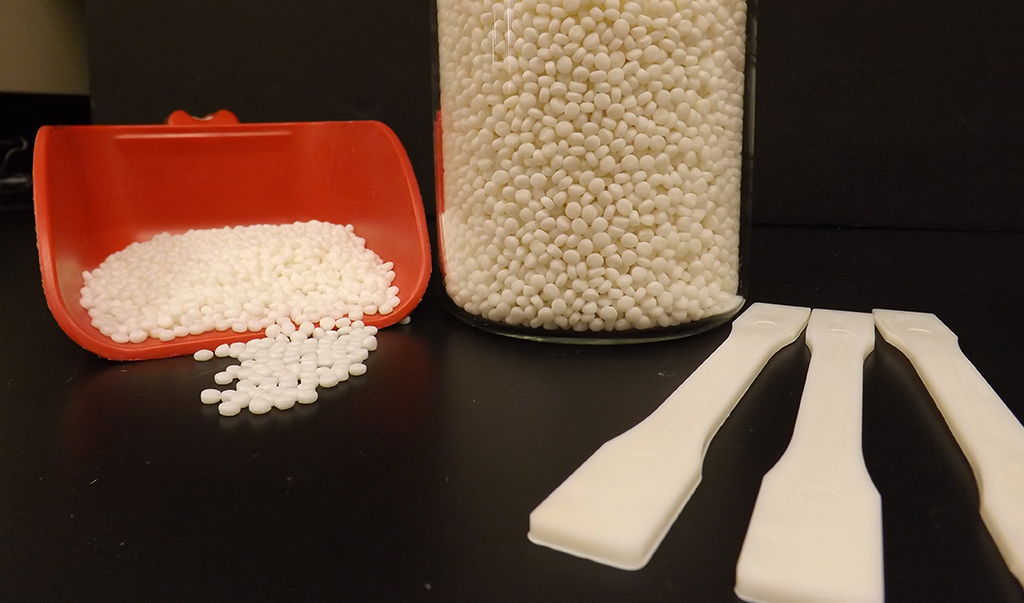
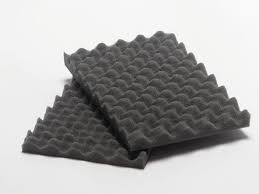
Biodegradation Process:
Biodegradable plastics break down in different ways in various places. In industrial composting sites, they break down fast. It is usually within a few months, thanks to high temperatures and microbes. Home composting can work too. But, it's slower and can take a few months to a few years. In natural environments, like forests or oceans, it's much slower, and some biodegradable plastics might stick around for years. But not all biodegradable plastics break down the same way, and it depends on the type and where they end up.
The speed at which biodegradable plastics break down and how well they decompose depends on several things. First, the type of plastic matters. Some break down faster than others.
Second, the environment plays a big role. Things like temperature, humidity, and the number of tiny creatures (microbes) around make a difference. In places with higher temperatures and moisture. One example is composting facilities, they break down faster.
Third, the microbes themselves are essential, as they do the work of breaking down the plastic. The presence of the right microbes in the environment helps a lot. Fourth, the availability of oxygen is important. Plastics break down faster where there's oxygen.
Finally, the size and thickness of the plastic item. The quality of composting, the plastic's age, and its exposure to sunlight and other elements can all affect how fast it breaks down. Understanding these things helps us know how to handle biodegradable plastics better. It also helps us to make sure they're good for the environment.
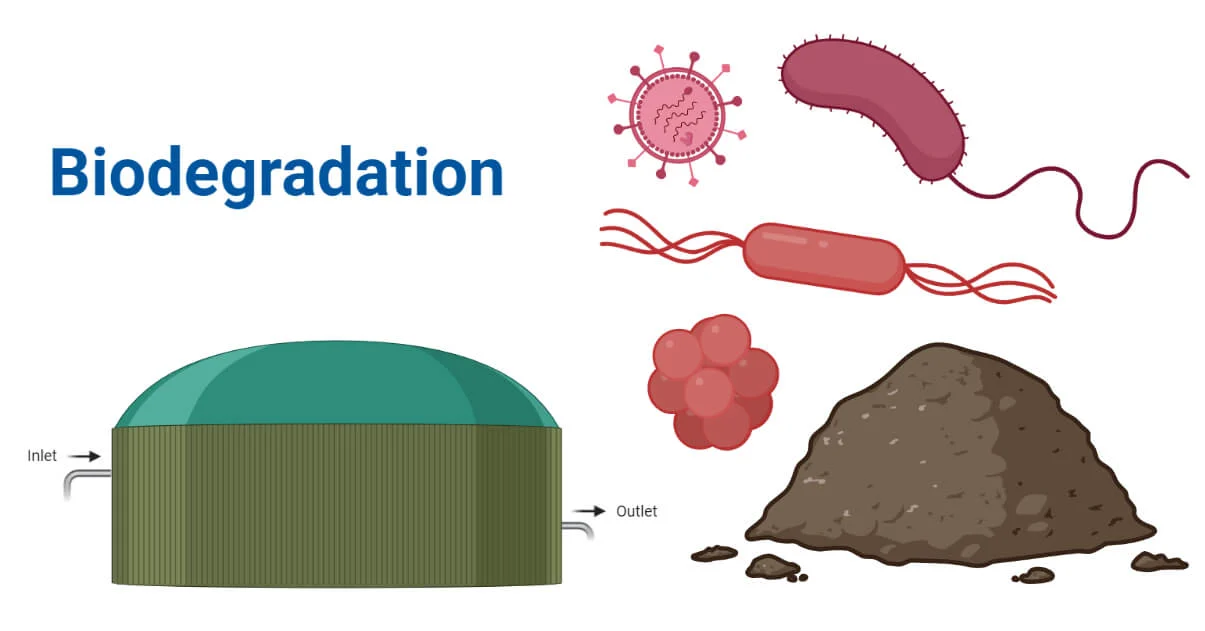
In conclusion:
In summary, biodegradable plastics are a good choice to tackle the environmental problems caused by regular plastics. They break down naturally into harmless substances like CO2 and water when conditions are right. Unlike regular plastics made from fossil fuels, they are better for the environment and reduce issues like pollution, habitat damage, and health risks. Picking the right type of plastic for specific needs is important for our environment. Understanding the different types of biodegradable plastics and how they work helps us make better choices. But it's also vital to use and dispose of them the right way. As some need special conditions to break down. The speed and effectiveness of biodegradation depend on things like temperature, microbes, and oxygen. By thinking about these factors, we can use biodegradable plastics wisely and help reduce the impact of plastic waste on our planet.
Contact us
AirX is the world’s first carbon-negative bio-material made from coffee grounds manufacturer.
We specialize in producing bio-based composites using recycled carbohydrates derived from by-products such as coffee grounds, coconut husk, husk, and bamboo. Our goal is to promote sustainability through the use of eco-friendly materials.
We are always here to help and provide the best service possible. If you have any questions or would like to receive advice and feedback directly from our sales staff, please do not hesitate to contact us. You can reach us through:
Whatsapp: +84 969 742 950
Email: [email protected]
We look forward to hearing from you!

